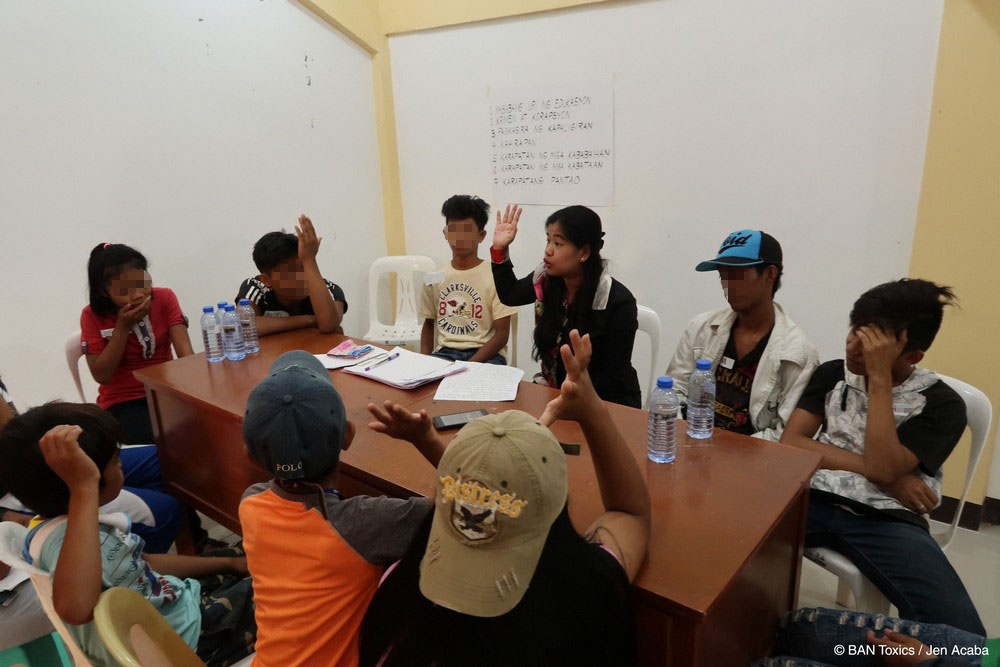
BAN Toxics visited artisanal and small-scale gold mining (ASGM) communities in Camarines Norte and South Cotabato in March and May 2017 to hold focus group discussions (FGDs) with adult and child miners. These FGDs were conducted as part of work for the CARING Gold project together with the International Labour Organization (ILO). CARING-Gold is a three-year initiative to eliminate child labor and improve working conditions in small-scale mine sites.
Through these FGDs, BAN Toxics hopes to capture an accurate picture of the experiences of ASGM communities. These FGDs centered on labor conditions in ASGM and their perceptions and experiences of child labor. In particular, the FGDs focused on these small-scale miners’ access to social protection, protective equipment and other employment benefits, as well as their exposure to toxic chemicals.
FGDs in Camarines Norte and South Cotabato were divided into three separate groups: men, women and child miners. Each group had FGD sessions separately in order to better evaluate any differences in mining experiences and perceptions among gender and age groups.
Moreover, the unique experiences of child laborers in poverty-stricken ASGM communities was a point of emphasis in the discussions in order to determine what kinds of work child miners do, what difficulties they face, why they work in mining and how they feel about this work.
Through these FGDs, BAN Toxics hopes to understand the inner workings of the small-scale mining sector and the challenges it faces, particularly in terms of child labor and working conditions. This can help BAN Toxics (1) better recommend ways forward on how public, private and civil society actors can support participatory development solutions for these marginalized ASGM communities and (2) amplify the voices of these often neglected small-scale miners.
In addition to eliminating child labor and improving working conditions in these small-scale mining communities, the CARING-Gold project (funded by the US Department of Labor) is eyeing the formalization of the small-scale mining industry. Formalizing the ASGM sector is seen as a critical solution to prevent boys and girls from risking their health and lives working in dangerous, unregulated mines.
BAN Toxics works in communities such as those in Camarines Norte to promote responsible artisanal and small-scale mining through mercury-free methods and the establishment of sustainable mining business models. BAN Toxics also seeks to work with the community in improving local capacity and organizing community members, women and children.
